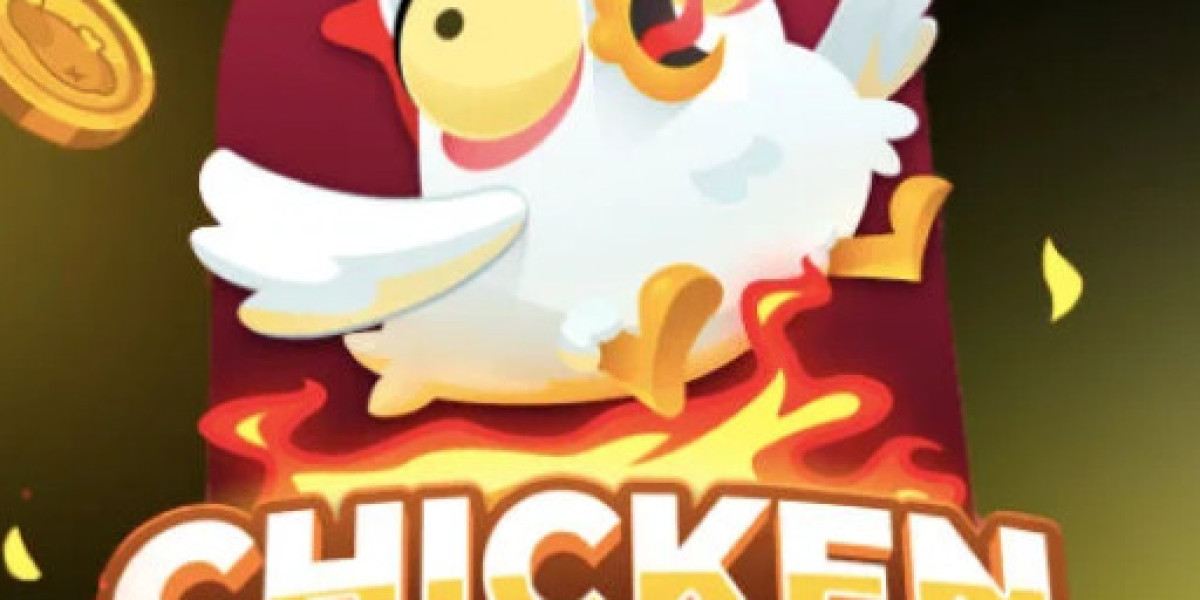Chicken Road: A Gambler's Folktale of Luck, Loss, and Legend
The world of gambling is rife with superstitions, rituals, and whispered tales of mythical places where fortunes are won and lost in the blink of an eye. Among these legends, few are as captivating and enigmatic as the story of Chicken Road. More than just a physical location, Chicken Road exists as a metaphor for the gambler's journey, a treacherous path fraught with risk, temptation, and the constant allure of hitting the jackpot. This article delves into the lore surrounding Chicken Road, exploring its origins, its significance in gambling culture, and the lessons it imparts about the nature of luck and the perils of addiction.
The Origins of the Legend: Where Did Chicken Road Come From?
Pinpointing the exact origin of the Chicken Road legend is a challenging task, as it's a tale passed down through generations of gamblers, evolving and adapting with each retelling. However, several common threads appear in the various versions of the story. Many attribute the name "Chicken Road" to the fear and indecision faced by gamblers contemplating risky bets. The "chicken" in Chicken Road represents the fear of losing, the temptation to back down from a potentially lucrative but dangerous wager. This fear, personified as the road itself, can lead a gambler astray, either by making them overly cautious and missing opportunities or by fueling reckless decisions in an attempt to prove their courage.
Another possible origin lies in the physical locations associated with gambling history. While no definitive "Chicken Road" exists on any official map, many believe the legend draws inspiration from real-life roads leading to infamous gambling dens and backrooms. These roads, often poorly maintained and shrouded in secrecy, were notoriously dangerous, both literally and figuratively. Travelers risked robbery, violence, and, of course, the financial devastation that awaited them at their destination. The very act of embarking on such a journey, therefore, became synonymous with taking a gamble on oneself, a willingness to face the unknown in pursuit of fortune.
Furthermore, some historians suggest that the phrase "Chicken Road" may have originated as a derogatory term used by seasoned gamblers to mock newcomers or those perceived as weak-willed. By labeling a player "chicken" for being hesitant or playing conservatively, they were essentially branding them as unfit for the high-stakes world of gambling. This social pressure, in turn, could push individuals to take unnecessary risks, further solidifying the legend of Chicken Road as a path to both potential riches and certain ruin.
Chicken Road in Gambling Culture: A Symbol of Risk and Reward
Regardless of its precise origins, Chicken Road has become deeply ingrained in gambling culture as a potent symbol of risk and reward. It represents the fine line between calculated risk-taking and reckless abandon, the constant push and pull between hope and fear that defines the gambler's experience. The allure of Chicken Road lies in its promise of immense wealth, the possibility of striking it rich and changing one's life forever. However, this promise is always tempered by the lurking threat of devastating losses, the potential to lose everything in a single, ill-advised bet.
The concept of Chicken Road is often invoked in gambling circles as a cautionary tale, a reminder of the importance of discipline, self-control, and responsible gambling habits. Experienced players may use the phrase to warn against chasing losses, betting more than one can afford to lose, or allowing emotions to cloud one's judgment. It serves as a constant reminder that gambling is a game of chance, and that even the most skilled players can fall victim to bad luck or poor decisions.
The legend also highlights the psychological aspect of gambling. Chicken Road is not just about the money; it's about the thrill of the chase, the adrenaline rush of placing a high-stakes bet, and the validation that comes with winning. This psychological component can be highly addictive, leading individuals down a path of compulsive gambling that ultimately destroys their lives. The story of Chicken Road serves as a stark warning about the dangers of succumbing to this addiction and the importance of seeking help if one recognizes the signs.
Navigating Chicken Road: Strategies for Responsible Gambling
While the legend of Chicken Road is often presented as a cautionary tale, it also offers valuable lessons on how to approach gambling responsibly. By understanding the risks involved and adopting a strategic mindset, gamblers can navigate Chicken Road without succumbing to its pitfalls. Here are some key strategies for responsible gambling:
Setting a Budget and Sticking to It
One of the most crucial aspects of responsible gambling is setting a budget and strictly adhering to it. Before even entering a casino or logging onto an online gambling site, determine the amount of money you are willing to lose and consider it an entertainment expense. Once you've reached that limit, stop gambling, regardless of whether you're winning or losing. Never chase your losses by betting more money in an attempt to recoup what you've lost, as this can quickly spiral into a cycle of debt and despair.
Understanding the Odds and House Edge
Educate yourself about the odds of each game you play and the house edge. The house edge represents the casino's advantage over the player, and it varies depending on the game. Understanding these odds will help you make informed decisions about which games to play and how much to bet. For example, games like blackjack and poker offer better odds than slot machines or roulette, but they also require more skill and strategy.
Knowing When to Quit
Knowing when to quit is just as important as knowing when to start. Set win and loss limits for yourself and stick to them. If you reach your win limit, cash out your winnings and walk away. Don't get greedy and try to win even more, as the odds will eventually turn against you. Similarly, if you reach your loss limit, stop gambling and accept the loss. Don't try to win back what you've lost, as this can lead to even greater losses.
Avoiding Gambling Under the Influence
Avoid gambling under the influence of alcohol or drugs. These substances can impair your judgment and lead you to make impulsive decisions. They can also lower your inhibitions and make you more likely to bet more than you can afford to lose. Gambling should always be approached with a clear and sober mind.
Taking Breaks and Seeking Support
Take frequent breaks while gambling to clear your head and avoid becoming too emotionally invested in the outcome. Get up and walk around, grab a drink, or chat with friends. If you feel like you're losing control of your gambling, seek help from a trusted friend, family member, or professional counselor. There are many resources available to help people struggling with gambling addiction.
The Enduring Appeal of Chicken Road: Why the Legend Persists
Despite its cautionary message, the legend of Chicken Road continues to resonate with gamblers around the world. Its enduring appeal lies in its ability to capture the essence of the gambling experience – the thrill of risk, the allure of reward, and the constant struggle between hope and fear. It also serves as a reminder that gambling is not just about the money; it's about the psychological and emotional aspects of the game.
Chicken Road represents the ultimate test of a gambler's character, a journey that can lead to either immense wealth or devastating loss. By understanding the risks involved and adopting a responsible approach to gambling, players can navigate this treacherous path and avoid succumbing to its pitfalls. The legend of Chicken Road serves as a timeless reminder of the importance of discipline, self-control, and the pursuit of fortune with caution and awareness.
Table: Responsible Gambling Strategies
| Strategy | Description | Benefits |
|---|---|---|
| Set a Budget | Determine the amount of money you're willing to lose before gambling. | Prevents overspending and chasing losses. |
| Understand Odds | Learn the probabilities of winning and the house edge for each game. | Informed betting decisions and reduced risk. |
| Know When to Quit | Establish win and loss limits and stick to them. | Protects winnings and prevents further losses. |
| Avoid Influence | Refrain from gambling under the influence of alcohol or drugs. | Clear judgment and rational decision-making. |
| Take Breaks | Step away from gambling periodically to clear your head. | Reduced emotional investment and improved focus. |
List: Signs of Problem Gambling
- Preoccupation with gambling.
- Needing to gamble with increasing amounts of money to achieve the desired excitement.
- Repeated unsuccessful efforts to control, cut back, or stop gambling.
- Restlessness or irritability when attempting to cut down or stop gambling.
- Gambling to escape from problems or relieve feelings of hopelessness, guilt, anxiety, or depression.
- Lying to conceal the extent of gambling involvement.
- Jeopardizing or losing a significant relationship, job, or educational or career opportunity because of gambling.
- Reliance on others to provide money to relieve desperate financial situations caused by gambling.
Conclusion: The Road Less Traveled
Chicken Road, in its essence, is a cautionary tale wrapped in the allure of quick riches. It serves as a powerful reminder that while the potential for reward exists in gambling, so too does the very real possibility of devastating loss. By understanding the legend, acknowledging its inherent risks, and adopting responsible gambling strategies, individuals can navigate the metaphorical Chicken Road with greater awareness and control. The road to riches may be paved with good intentions, but it's the choices made along the way that ultimately determine whether the journey leads to fortune or ruin. The truly wise gambler understands that sometimes, the most courageous act is not to continue down Chicken Road, but to choose a different path altogether.








